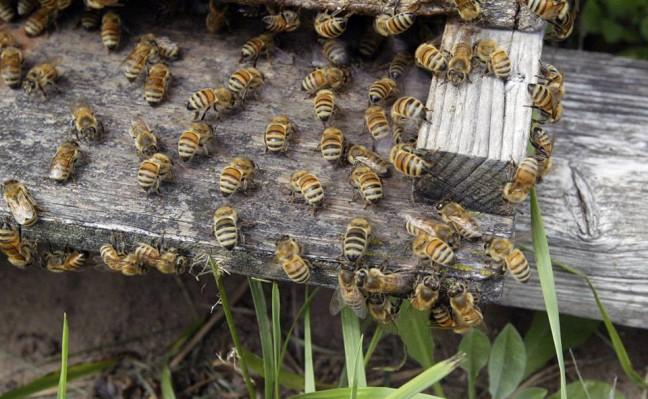What’s the buzz about bees, and why should I care? Long story short, if you are a human who likes to eat food, there is a pretty good reason to care about the bee population, especially in Wisconsin.
Usually, words such as pollen and bees are not seen fondly, due to allergies, painful stings and whatnot. But despite the bad rap, bees and other pollinators are absolutely critical to the ecosystem. Nobody likes getting stung by a bee, but in the grand scheme of things, the little creatures contribute a lot to us humans.
These pollinators are essential for more than 150 crops in the United States alone, and contribute $55 million worth of crops in the state of Wisconsin. Unfortunately, we have not been doing our part in this symbiotic relationship, and bee populations are on the decline.
This is not good for us.
In Wisconsin, the disappearance of our natural pollinators means a decline in native crops like cherries, cranberries and apples. On a national scale, that group includes almonds, melons, fruit, grains — you get the idea.
This should be deeply troubling to anyone who enjoys eating. The honeybee die-off rates in Wisconsin in 2015 were among the highest in the country — a staggering 60 percent.
The list of benefits bees bring to us as a species and to the ecosystem goes on and on. Now that we are beginning to understand the importance of bees, we must ask ourselves why this decrease in population size is falling so dramatically.
A large component of that question boils down to pesticides. Wisconsin has a flourishing corn and soybean industry, which totals to a net worth of $6.2 billion. These crops are inarguably important, but often the pesticides farmers use on them can be harmful to bees.
Unlike many other types of plants, neither corn nor soybeans require pollination. Because of this, the importance of pollinating species populations is sometimes overlooked and brushed aside.
Some other contributing factors to the decline of bees include too few flowers to provide nectar, lack of genetic diversity in artificially bred honeybee populations and bee-targeting viruses and parasites.
This isn’t a game of pointing fingers and blaming someone for the decline of bees. It is an issue that should be attracting much more attention than it is because the significance of bees isn’t often considered in everyday life.
Thankfully, the government is starting to step in and implement a plan to save the bees. In May 2015, the Pollinator Health Task Force released the “National Strategy to Promote the Health of Honeybees and Other Pollinators.”
This plan is designed to address both immediate and long-term changes to help positively impact the population of pollinators across the nation. One of the goals of this strategy is to restore 7 million acres of land for natural pollinators by 2020.
Similarly, Wisconsin followed suit by introducing “Pollinator Protection in Wisconsin.” This initiative, which the Wisconsin Department of Agriculture, Trade and Consumer Protection set into place, aims to inform the public of the importance of bees and distribute strategies to promote their longevity and well-being.
One of the largest controversies surrounding these initiatives is the question of whether or not these measures will be enough. The initiative outlines simple information and steps individuals can take on a voluntary basis, but no firm action or regulation on a large scale.
Bees are perhaps one of the most beneficial but underappreciated species in existence. It is easy to overlook the contributions they make to the ecosystem, and what they do for resources we use every day.
Next time you grab a piece of fruit at one of the dining halls, or sit down with fresh salad for dinner, remember the creatures that worked hard to pollinate that food and their importance to us as humans.
Hannah Fricke (hfricke




















